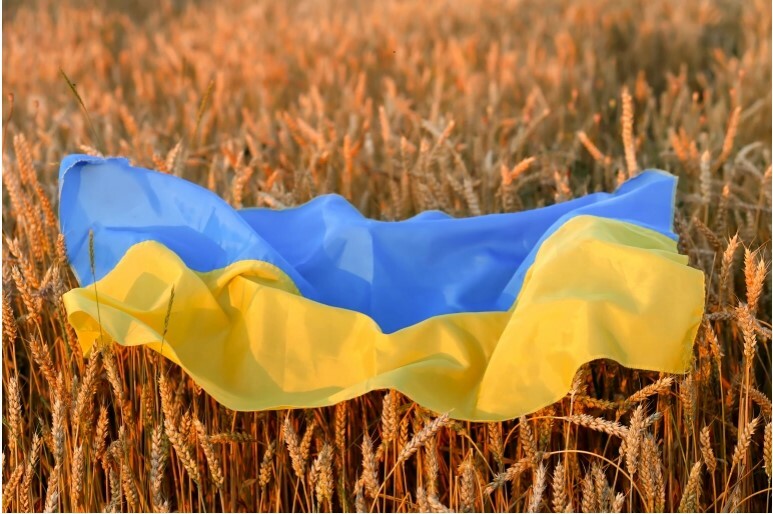The United Nations announced, on Tuesday, that “consultations” are continuing after Russia proposed extending the Ukrainian grain export agreement for a period of only 60 days instead of 120 days, as has been the case since the signing of the agreement.
"The United Nations will do everything in its power to preserve the agreement as it is and ensure its continuity," said Jens Larke, spokesman for the United Nations Office for the Coordination of Humanitarian Affairs (OCHA).
He indicated that "consultations are continuing with all parties and at all levels," without specifying what will happen when the agreement expires on March 18, after it was extended for 120 days in the fall.
In response to a torrent of questions from journalists in Geneva, he said, "We'll see on Saturday what happens."
On Monday, Russian Deputy Foreign Minister Sergey Vershinin announced, after talks with United Nations Assistant Secretary-General for Humanitarian Affairs Martin Griffiths and Secretary-General of the United Nations Conference on Trade and Development Rebecca Grynspan in Geneva, that Moscow "does not oppose a new extension of the Black Sea Initiative after its second extension expired on 18 March, but only for 60 days.
However, Kiev considered that extending the agreement by 60 days "contradicts" what was agreed upon.
"The agreement on the Black Sea grain initiative provides for an extension of at least 120 days, and Russia's position to extend it for only 60 days contradicts the document signed by Turkey and the United Nations," Ukrainian Minister of Infrastructure Oleksandr Kubrakov wrote in a tweet on Monday.
He explained that Ukraine is waiting for the "official position" of the United Nations and Turkey as "guarantors" of the agreement.
In a statement issued Monday evening, the United Nations confirmed that it had "taken note" of the Russian position.
This is the third time in less than 24 hours that the organization promises to do its best to provide a mechanism that allows the export of tens of millions of tons of grain to global markets and calm prices, which have risen sharply since the start of the Russian invasion of Ukraine.
"The grain agreement provides for a renewal of 120 days, but in the current circumstances, the (UN) Secretary-General and his team, who are in contact with all parties, are committed to doing everything in their power to ensure continuity of the initiative.
Dujarric acknowledged that despite the "significant progress" there were still some obstacles, "especially with regard to payment systems".
"Our efforts to overcome these obstacles will continue as a whole," he said.
He explained that "the director of the United Nations Conference on Trade and Development, Rebecca Greenspan and her team, as well as the Secretary-General, have spared no effort to facilitate" this matter.
Moscow is not satisfied with the results of the second agreement, which was concluded in parallel last summer with the United Nations, and aimed at removing obstacles to its grain exports, especially fertilizers.
Although these products are not affected by the sanctions imposed by Kiev's allies to force Moscow to stop invading Ukraine, these financial measures have had the indirect effect of deterring middlemen who fear retaliation in the United States and Europe.
On Tuesday, Kremlin spokesman Dmitry Peskov clarified Moscow's position.
"It is clear that in general... the second part of the agreement that concerns us has not yet been implemented... We appreciate the efforts of the United Nations and the Secretary-General personally. But Mr. (Antonio) Guterres has not succeeded in breaching the wall that the West has erected as a group," he said.
The main sticking points for Moscow, according to Vershinin, include "bank payments, transport logistics, guarantees, ending the freeze on financial activities, and the supply of ammonia through the Togliatti-Odessa pipeline."
The Ukrainian grain export agreement contributed to alleviating the global food crisis, after the Russian invasion of Ukraine on February 24, 2022 halted Ukrainian grain shipments across the Black Sea due to the blockade of warships until an agreement was concluded on July 22 to find a safe passage for their export.
In mid-November, the agreement was extended for four months, until March 18, and enabled the export of about 24.3 million tons of grain from Ukrainian ports.
In contrast, with regard to the fertilizer part, only a small amount of the total 260,000 tons of Russian fertilizer stored in European ports since the beginning of the war has been exported.
Dujarric stressed that "the grain agreement and the memorandum of understanding on the export of Russian food and fertilizers, both are necessary for global food security, especially in developing countries," not to lose sight of those who will be the main victims if the agreement expires.
A spokeswoman for the World Food Program told AFP that the program "is about to charter a ship to transport more than 34,000 tons of chemicals used in the production of fertilizers from Latvia to Kenya" at the latter's request.
"A contract has been concluded between Uralchem-Uralkali (a Russian group and one of the world's leading fertilizer producers), Kenya National Trading Company (a public entity) and the World Food Programme," she added.
The World Food Program had transported 20,000 tons of products donated by Uralchem-Uralkali to the Government of Malawi.








Share your opinion
Consultations are continuing regarding the Ukrainian grain export agreement, after Russia's proposal